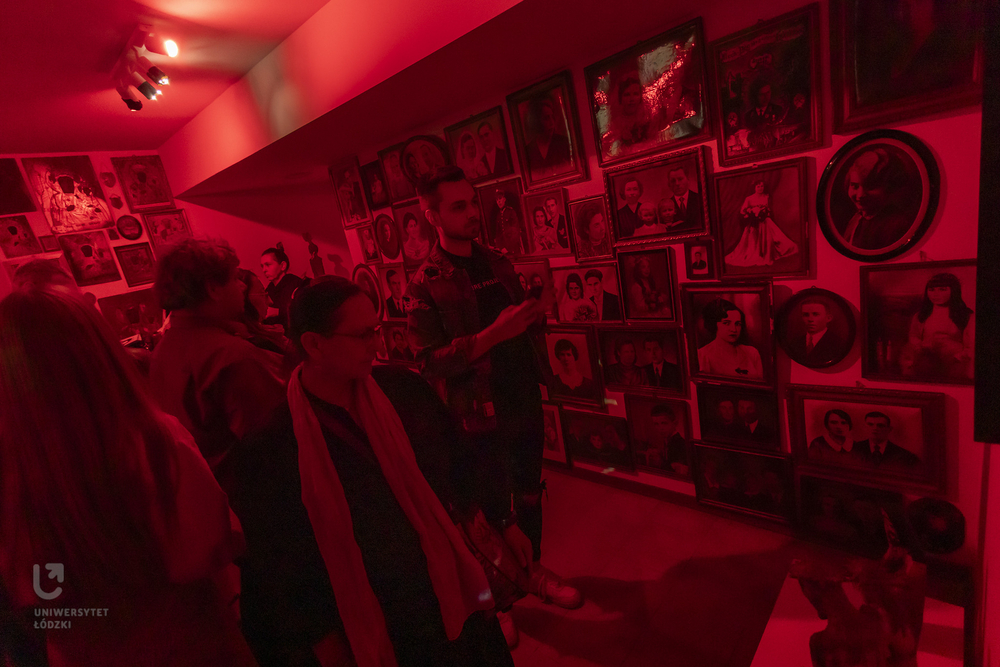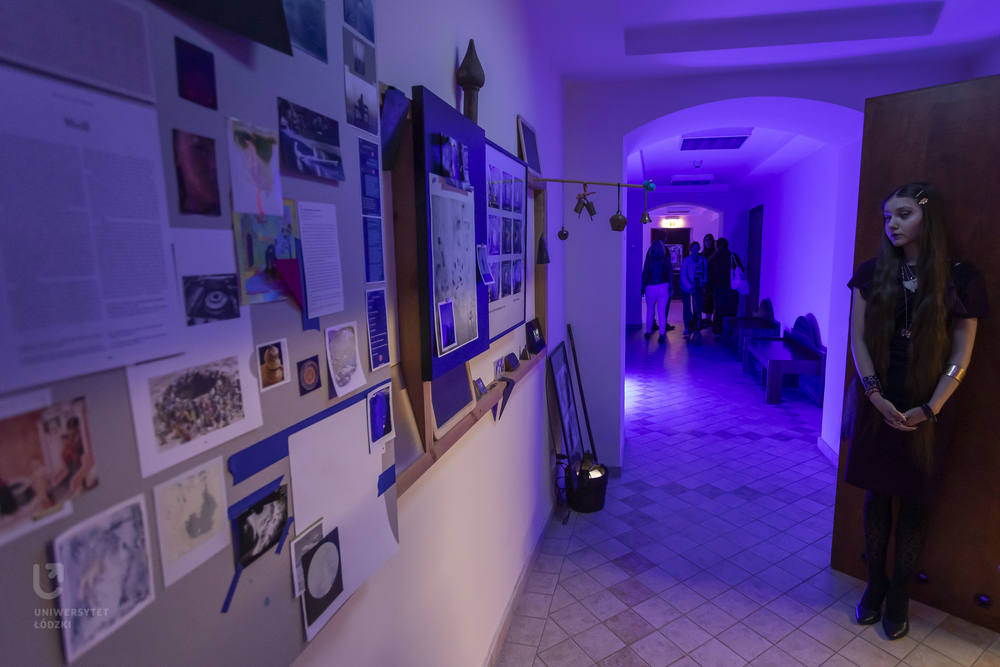
Transparent rules
The scholarship of the Minister of Science for outstanding young scientists is a basic ministerial programme rewarding the achievements of researchers at the early stage of their scientific careers. It is announced annually and provides for the selection of winners from each discipline of Polish science on the basis of a transparent evaluation of scientific achievements, which takes into account publications, foreign internships, research grants and other scientific achievements.
The Minister's scholarships were awarded to young scientists representing 53 scientific and artistic disciplines. In a given scientific discipline, it is recommended to award no more than 5 scholarships to young scientists, including no more than 1 scholarship to a doctoral student.
Full list of the scholarship recipients
The scholarship winners from the University of Lodz

Dr Ruxandra Ana is originally from Brașov, Romania. She is an Assistant Professor in the Practical Anthropology Unit at the Faculty of Philosophy and History, University of Lodz. Over the years 2011 and 2014, she conducted fieldwork in Cuba, focusing on Havana and Matanzas, having a closer look at contemporary Cuban rumba. Her main research interests include the anthropology of dance and the anthropology of tourism, intangible cultural heritage, race and tourism in postcolonial contexts, particularly in Latin America and the Caribbean. Her current research focuses on cultural heritage in relation to labour practices, entrepreneurship and social change in Cuba.
The study of dance practices in migratory contexts stems from observations at various stages of ethnographic fieldwork conducted in Cuba over the past ten years. The novelty of her research process consists in her understanding of dance as work in migratory contexts. With this approach, the project enriches the area of critical research on dance, which has so far focused on the migration of artistic elites or looked at dance in migratory contexts as a way of preserving/maintaining tradition or breaking with it. Dr Ruxandra Ana's research contributes to the anthropology of migration and debates on transnationalism by challenging assumptions of Cuban exceptionalism developed through studies of Cuban migration to the United States.

Dr Karol Jóźwiak
His research topics include the theory and history of 20th century European culture and their links to politics, memory and philosophy. On the one hand, he deals with the issues of philosophical exegesis of selected thinkers and artists (e.g. Pier Paolo Pasolini, Zofia Rydet, Leopold Buczkowski, Stefan Themerson, Michał Waszyński) focusing on the creation of intellectual and artistic biographies. On the other, he undertakes research in a broader perspective on the transnational mechanisms of cultural functioning and the shaping of memory, history and international politics. Often these two levels intertwine and lead to new discoveries (his work on Pasolini's oeuvre turned his attention to the problem of reading Italian cinema in the transnational perspective of cultural politics, and his work on Zofia Rydet's oeuvre made him realise how strongly the 20th-century fate of Poland influenced her and was reflected in her work).
His current research grant deals with the issue of film culture as an element of cultural diplomacy between the European communist bloc countries and Italy, influencing the public perception of Cold War politics and the perpetuation of the so-called Sovietophilia that defines the film culture of post-war Italy. Using Italian cinema as an example, he seeks to reveal the influence of popular culture on social perceptions of political and ethical issues, and to bring out the incompatibility of cultural perceptions of the communist regime developed in Italian society and the societies of Central and Eastern Europe. In this sense, the research also addresses the problem of contradictory and mutually exclusive historical policies in relation to the communist regime. Moreover, the adopted interpretative framework of Italian cinema allows it to highlight cultural phenomena that, from the perspective of local or global cinema history, seem marginal, not worth attention or incomprehensible. From a Polish or Eastern European perspective, on the other hand, they appear to be extremely interesting and meaningful.
 The opening of the Photosophical Archive (photo by Maciej Andrzejewski)
The opening of the Photosophical Archive (photo by Maciej Andrzejewski)
The Italian work of Michał Waszyński is a good example. Due to its strong connection with issues of international politics (calling to question the post-Yalta order in Eastern Europe, emphasizing the traumas and wrongs of Poles during World War II and the injustice they experienced later), it was very poorly received by Italian critics, and was even subjected to systemic restrictions (censorship, distribution difficulties). This unjustly forgotten film work appears to be an exceptionally interesting exemplification for the discourse on the relationship between trauma, war experience and the possibilities of artistic and visual means, which is developed by contemporary researchers.
 Otwarcie Archiwum Fotozoficznego (zdjęcie: Maciej Andrzejewski)
Otwarcie Archiwum Fotozoficznego (zdjęcie: Maciej Andrzejewski)
Based on the conclusions from the research on the work of Zofia Rydet and the cooperation with the recently deceased Andrzej Różycki, an artist, an art historian, a theoretician and a collector, Dr Karol Jóźwiak came up with the initiative to establish the Andrzej Różycki Photosophical Archive at the University of Lodz, which carries out activities on the border of contemporary art, art-based research and material and visual culture research.
Dr Karol Jóźwiak says:
I think that today, in a period of re-evaluation of identity issues related to Polish culture and its relation to broader orders such as Europe, the globalised world, the differently conceived 'Western world', this type of reflection is particularly justified. Developing this reflection based on specific and quite narrow research issues makes it possible for it to be universalised and therefore introduced into the main trends of research on visual culture carried out within the framework of contemporary humanities and social research. I consider these attempts to give a universal character to the cultural experiences of Central and Eastern Europe and to find formulas that would allow them to be embedded in contemporary discourses of cultural research to be the fundamental value of the research I undertake.
We would like to offer congratulations to the scholarship winners!
Source: Dr Ruxandra Ana (Practical Anthropology Unit, Faculty of Philosophy and History, University of Lodz), Dr Karol Jóźwiak (Department of Drama and Theatre, Faculty of Philology, University of Lodz)
Edit: Michał Gruda (Communications and PR Centre, University of Lodz)
The mission of the University of Lodz is to conduct reliable research and actively disseminate facts and research results so as to wisely educate future generations, be useful to society and courageously respond to the challenges of the modern world. Scientific excellence is always our best compass. Our values include: courage, curiosity, commitment, cooperation and respect.
